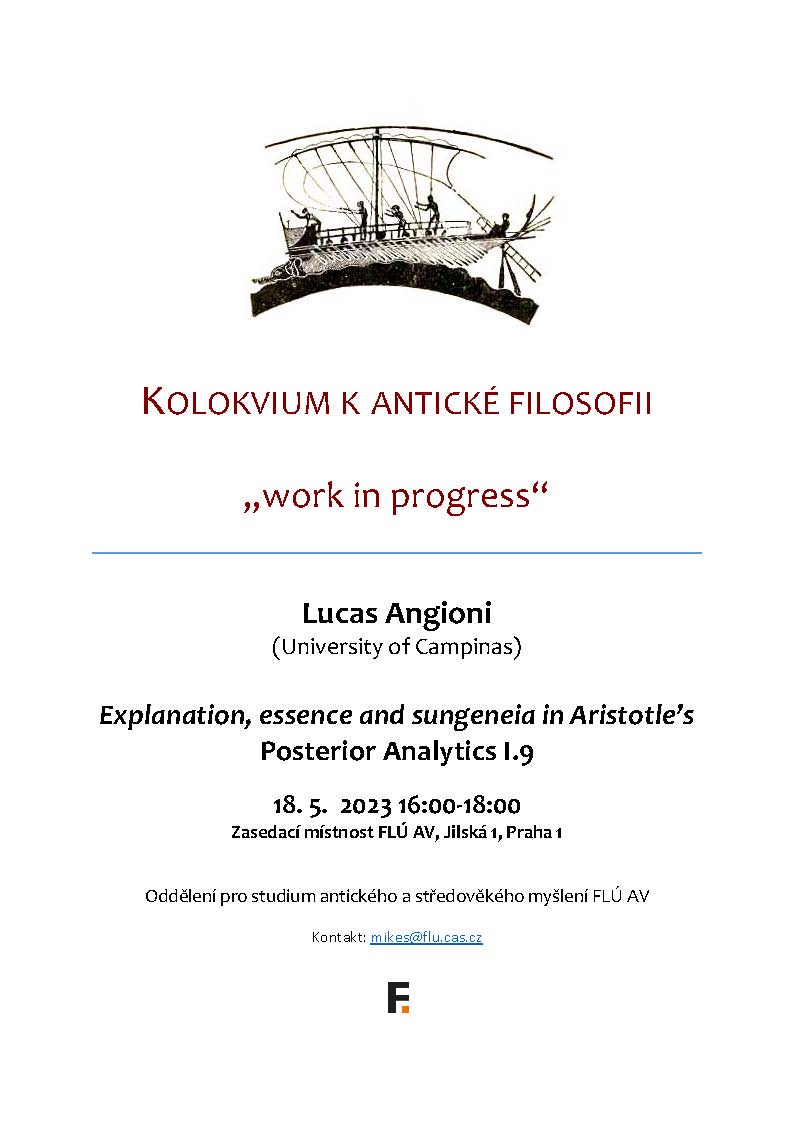Poster

Abstrakt
Aristotle’s argument in Posterior Analytics I.9 hinges on the requirement that “one cannot demonstrate each thing except from the principles of that thing qua itself” (75b37-38). I intend to discuss what exactly Aristotle means by that. A lot depends both on what “the thing qua itself” refers to, and on the notion of principle that is at stake. Besides, as Aristotle’s discussion goes on, notions such as primariness and sungeneia (close afinity, or appropriateness) emerge as decisively important. In this talk, I will argue for two specific points. First, I claim that Aristotle is worried with a wrong intepretation of the primariness requirement, which is one of requirements for demonstrative premises formulated in I.2 (71b20-32). Taken in the wrong way, that requirement can be satisfied in pseudo-demonstrations like Bryson’s squaring of the circle. Principles from which one like Bryson attempts to demonstrate a given thing can happen be true, indemonstrable, immediate and primary in this way, but they might still fail at being the principles of that thing. Aristotle further requires that those principles be sungenes with the explanandum. Thus, the primariness requirement should be controlled and steered by this sungeneia requirement. It is on this background that my second point emerges. The notion of “the thing qua itself” refers to the attribute to be explained in a given demonstration within a given discipline. The notion of sungeneia is variegated, being employed in many ways in different contexts. But, here in the relevant context of I.9 discussion, the decisive kind of sungeneia is the full appropriateness of the explanatory factor in relation to the attribute to be explained. Accordingly, the relevant notion of a primary principle that arises in this discussion is not the old notion of a foundational “first principle” that blocks the risk of infinite regress and grounds the explanation in the essence of the subject of the attribute to be explained. The relevant notion of a primary principle that arises in I.9 has those foundational powers too, but its decisive job is another one: it captures the ultimately decisive explanatory factor that brings the explanation to its utmost fulfillment. This primary principle has these properties because it is equivalent to the essence (or the most important factor in the essence) of the attribute to be explained (for this equivalence, see 93b6, 12; 99a3-4, 99a21-22). Thus, Aristotle’s discussion in I.9 bridges the discussions led in the previous chapter with Aristotle’s main idea that drives Book II of the Posterior Analytics, namely: the idea that to explain a given explanandum amounts to the same as to settle its essence (90a14-15, 31-34; 93a3-4).